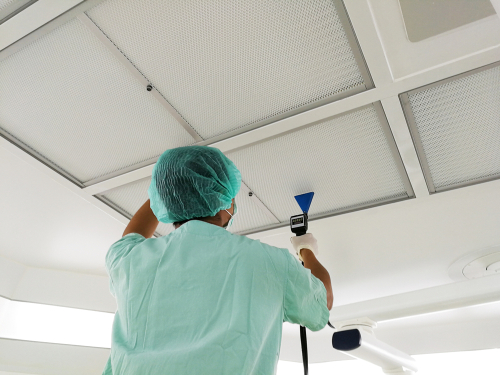When it comes to improving the air quality in your home or office, HEPA air filters are generally considered to be one of the best options for clean air. But before you purchase a HEPA filter system, it’s important to understand the advantages and disadvantages.
What is a HEPA filter?
HEPA stands for “high efficiency particulate air” and is designed to capture 99.97% of all particles 0.3 microns or larger. HEPA filters consist of a layer of millions of microscopic fibers, often made of glass or polypropylene, that trap particles as they pass through. The filters also typically contain activated charcoal to absorb gases and odors.
What are the benefits of using a HEPA filter?
Using a HEPA filter in your home or office can help to improve air quality by trapping particles like pollen, dust mites, mold spores, pet dander, and other allergens. HEPA filters are also effective at removing smoke and other airborne particles that can contribute to asthma and other respiratory illnesses. HEPA filters are a great way to create a healthier living environment, while also reducing the amount of dust and debris around the home or office.
HEPA filters can also reduce energy costs, as they trap airborne particles that can lead to blocked vents, causing the HVAC system to work harder. This results in a more efficient heating and cooling system that requires less energy to operate. Additionally, HEPA filters have a much longer life than standard furnace filters, meaning fewer replacements are needed over time.
What are the drawbacks of using a HEPA filter?
The disadvantages of HEPA air filters can be divided into two categories. The first is related to their cost. A high-quality HEPA filter can cost anywhere from a few hundred dollars up to several thousand depending on the size and model and the area to be covered. Secondly, they need to be regularly maintained and replaced in order to keep them working properly. This can add extra costs in terms of replacement filters and maintenance fees.
Additionally, some HEPA filters may produce noise – a low humming or buzzing sound – when they are running, making them less than ideal for use in bedrooms or quiet office spaces. HEPA filters are limited to particulates. There are harmful gases and fumes that may just pass through a HEPA filter. HEPA filters may cause air to become too dry. Finally, some HEPA filters may produce ozone, which is an unhealthy gas that can irritate the lungs.
HEPA Filters Use Depends on Individual Needs
If your home or certain office areas are frequented by individuals who suffer from allergies or respiratory problems, HEPA filters may prove to be of great value. In a general sense, no one wants to breathe in dust mites, mold spores, dust, smoke, or other harmful particulates on a daily basis. But ask first. The noise pollution of a HEPA filter may offset the advantages of cleaner air.
In an office setting or manufacturing area, your LACOSTA crew is more than willing to accommodate your use of HEPA filter systems. Talk with your LACOSTA manager about regular filter replacement and other maintenance requirements.


